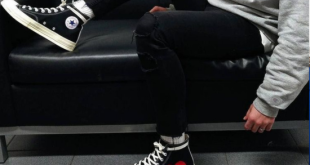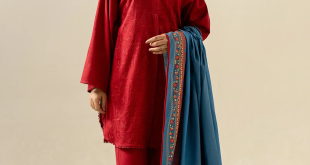From Print to Digital Platforms
The shift from traditional print media to digital platforms has democratized fashion reporting. Visit now https://www.sp5derhoodieshop.net/ Websites, blogs, and social media have become the primary sources for style inspiration, news, and commentary. Digital reporting allows real-time updates, ensuring audiences are instantly informed about runway shows, designer launches, and fashion trends.
Social Media: The New Frontline
Platforms like Instagram, TikTok, and Pinterest are now essential for fashion reporting. Influencers and creators act as mini-reporters, curating content for their followers. This shift has blurred the lines between journalism and personal branding.
Key Benefits of Social Media in Fashion Reporting:
- Instant updates on global fashion events.
- Accessibility to a broader audience.
- Opportunities for interactive content, such as polls and live streams.
Technology Driving Fashion Journalism
Artificial Intelligence (AI) in Reporting
AI-powered tools are revolutionizing how fashion stories are written and analyzed. Algorithms can predict trends, analyze consumer behavior, and even generate articles based on runway data. AI enables faster, more accurate reporting tailored to audience preferences.
Applications of AI in Fashion Reporting:
- Identifying emerging trends from social media hashtags.
- Automated content creation using natural language processing.
- Enhanced audience targeting for personalized content delivery.
Augmented and Virtual Reality (AR/VR)
AR and VR are becoming staples in fashion journalism. Virtual fashion shows and immersive editorial features offer readers an interactive experience. These technologies make fashion more engaging and accessible, regardless of geographical barriers.
Sustainability as a Central Narrative
Reporting on Ethical Fashion
The future of fashion reporting is heavily tied to sustainability. Consumers demand transparency, and reporters play a crucial role in holding brands accountable. Investigative pieces on eco-friendly materials, fair labor practices, and circular fashion systems are gaining traction.
Highlighting Circular Fashion
Circular fashion, which focuses on recycling and upcycling, is becoming a focal point for journalists. Reports on brands that adopt sustainable practices inspire consumers to make conscious choices.
Inclusivity and Representation in Fashion Journalism
Diverse Voices Shaping the Narrative
Fashion reporting is no longer confined to a singular perspective. Voices from different cultures, genders, and backgrounds are being amplified, reflecting the industry’s global and diverse nature.
Examples of Inclusivity in Fashion Reporting:
- Spotlighting designers from underrepresented communities.
- Promoting body positivity and adaptive fashion.
- Celebrating gender-neutral and non-binary collections.
Challenges and Opportunities
While inclusivity is celebrated, challenges remain. Reporters must navigate cultural sensitivities and ensure balanced storytelling. However, these efforts foster a richer and more authentic dialogue in the fashion space.
Challenges in the Modern Fashion Reporting Landscape
Information Overload
The abundance of content online makes it challenging for fashion reporters to stand out. Developing a unique voice and perspective is essential to gain recognition and establish authority in the field.
Maintaining Credibility
In the age of clickbait and misinformation, fashion journalists must prioritize accurate reporting and fact-checking. Readers value authenticity and expertise, which are critical for building trust and a loyal audience.
Strategies for Success in Fashion Reporting
Continuous Skill Development
Fashion journalists should invest in improving their skills, including:
- SEO optimization for online content
- Photography and video editing for multimedia storytelling
- Networking with industry professionals
Embracing a Multi-Platform Presence
Maintaining an active presence on multiple platforms, such as YouTube, Instagram, and LinkedIn, allows journalists to diversify their content and connect with various demographics.
Staying Ahead of Trends
By keeping a pulse on emerging fashion movements, reporters can deliver timely and relevant content that captures reader interest and positions them as industry thought leaders.
The Role of Data in Fashion Journalism
The integration of data analytics in fashion reporting is providing fresh insights. Checkit now https://spiderofficial.us/ From analyzing consumer trends to measuring the success of fashion shows, data is becoming an invaluable resource for journalists.
Advantages of Data in Reporting:
- Precision in trend prediction.
- Enhanced credibility through factual reporting.
- Visualization tools like infographics to engage readers.
Real-Time Analytics
Tools like Google Trends and social listening platforms empower reporters to stay ahead of the curve. Real-time analytics enable quick responses to breaking stories, ensuring timely and relevant content.
Future-Proofing Fashion Reporting
Embracing Innovation
To stay relevant, fashion journalists must continuously adapt to new technologies and methodologies. Experimenting with AI, AR, and multimedia content will be essential for future-proofing the industry.
Education and Skill Development
Aspiring reporters are now expected to have skills beyond writing, such as video editing, SEO knowledge, and data analysis. Journalism schools are adapting their curriculums to meet these demands, ensuring the next generation of fashion reporters is well-equipped.
The Role of Technology in Collaboration
Blockchain for Traceability
Blockchain technology offers a secure and transparent way to track products throughout the supply chain. This innovation can help ensure compliance with industry standards and boost consumer confidence.
AI-Driven Sustainability Solutions
Artificial intelligence can optimize processes, from predicting consumer demand to improving recycling systems. Companies that share AI-driven insights can accelerate sustainability efforts.
Digital Platforms for Collaboration
Platforms that facilitate communication and data sharing among stakeholders are essential. These tools can streamline decision-making and ensure all participants are aligned on goals.
The Fashion Pact
The Fashion Pact, launched in 2019, is a prime example of industry collaboration. Over 60 global brands committed to addressing environmental challenges through joint action. This initiative demonstrates the potential for collective efforts to create meaningful change.
Higg Index
The Higg Index, developed by the Sustainable Apparel Coalition, provides a standardized framework for measuring environmental and social impacts. Its widespread adoption shows how shared tools can drive progress across the industry
Conclusion
The future of fashion reporting is undeniably bright, driven by technological advancements, a commitment to sustainability, and a celebration of diversity. As the industry evolves, so must its storytellers, embracing innovation while maintaining the essence of authentic journalism.
 Daily Blogger News Stay updated with the latest trends and insights. Your reliable source for daily updates and information.
Daily Blogger News Stay updated with the latest trends and insights. Your reliable source for daily updates and information.






